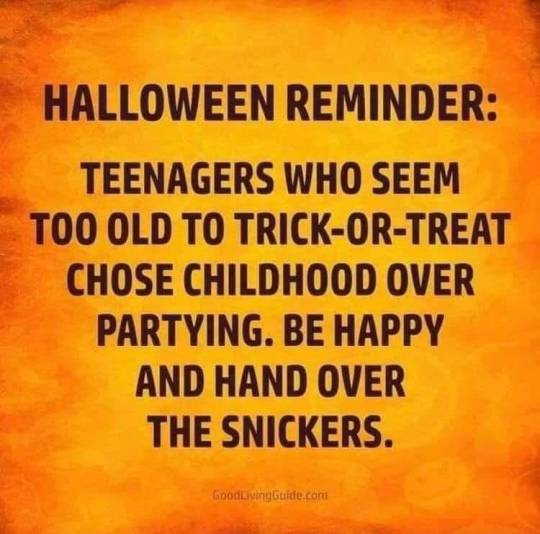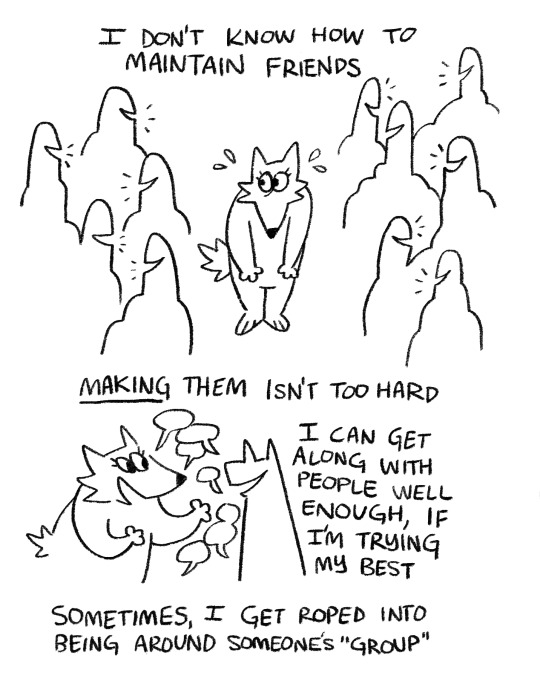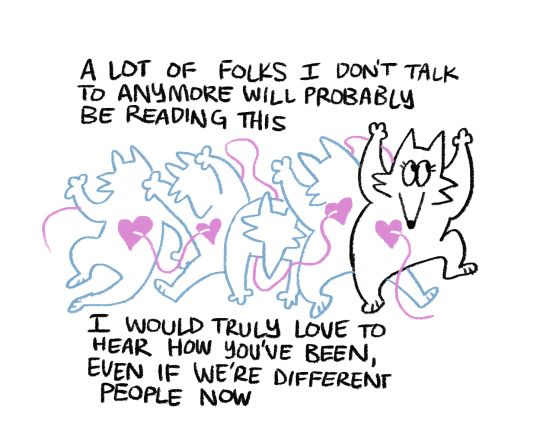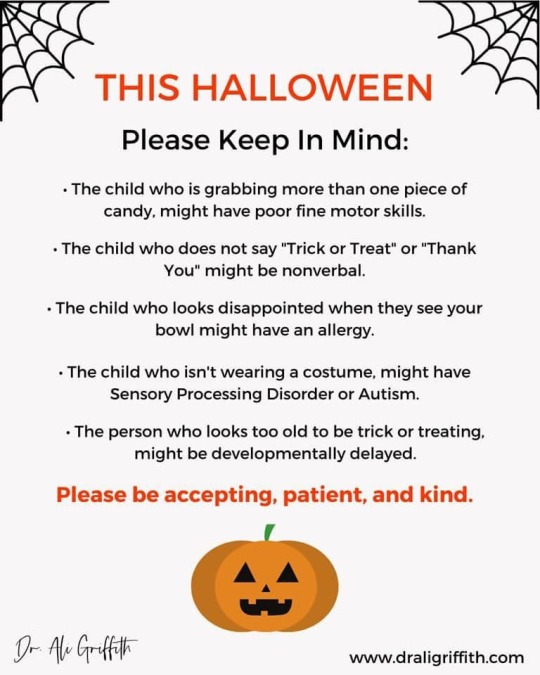#Developmental Delays
Explore tagged Tumblr posts
Text
diagnosed with developmental dilly-dallying
161 notes
·
View notes
Text
Sick of how people are like "ew what's that" when people are acting childish or something like hello? can you be a human fucking being for a second?
Its my life, the way I grew up and the way I was treated as a neurodivergent and disabled person. The developmental delays, my echolalia and vocal stims and the way that I look and have been treated makes me look, act and be treated like a child.
So before you say "omg all women are infantilized in stories and media and its so gross and yucky", like shut the fuck up. If you aren't disabled or don't have developmental delays, you don't know what it's like and its not your right to judge people who act like kids.
If you say "omg men treat women like babies" and then turn around and look at an autistic woman and think she's "ew gross" because she acts like a child, actually go fuck yourself.
#babey posts#actually autistic#actually neurodivergent#developmental delays#feminism#infantilism#like actually fall off a cliff and die if you dont treat childish disabled women right#fuck you so fucking much#ableism
145 notes
·
View notes
Text
Schools been back in session for several months now. You know what that means? More things said/done in self-contained prek.
To be completely honest I mainly make these for me
§
Kid: I love the letter “f!”
Teacher: Me too! My favorite word starts with “f!”
*Adult Laughter*
§
Me: Did you paint on your friends drawing?
Kid: *Jumping in place giggling*
§
Song Ends
Kid 1: Yay!
Me: Did you say “yay?”
Kid 2: Yay!!!
Kid 3: *Throws arms up* YAY!!!!!
§
Kid: ABCs are all done!
Teacher: No, ABCs just started.
§
Kid: Pineapple!
Para: Yeah, pine- wait, no.
Me: That is a feather.
Kid: Pineapple!
Me: Feather.
Kid: PINEAPPLE!
§
Kid: *Holds up toy* Walrus!
Me: That’s Goofy. From Micky Mouse.
Kid: *Shoves Goofy in my face* WALRUS!
§
Teacher: Time to go to the bathroom.
Kid: No! Go to your room!
Teacher: *Laughing* This is my room.
§
Three Year-Old: *Walks up to O.T.* You are just. So. Cute!
§
Kid: what’s dis one? *points at core board*
Me: That one says “no.”
Kid: Dis one?
Me: That one says “different.”
Kid: Dis one?
Me: You’re pointing at “no” again.
This continues for a little bit. They would point at a word, point at no, and point at a different one.
Me: Is “no” your favorite? You keep going back to it.
Kid: *Points at yes, immediately goes back to no*
§
Kid: *Playing in sensory table* Sand!
Me: That’s water.
Kid: *Happily* Sand!
§
Me: Playground is all done! Time to go inside.
Kid: *Drops, laying on the ground* No, no, no, no-
Me: *Checks pockets* Here, have a feather.
Kid: *Takes feather and begins walking with me* Tickle, tickle!
§
Kid: *Dumps entire basket of play food* *Growling voice* Who did that?
§
Kid: *Counting* Seven crybabies….
§
Kid: *pokes bruise on my leg* Why you run into stuff?
Me: It was an accident. I’m okay!
Kid: You gotta go to the hospital!
§
Kid: It’s Ms. Nugget!
Para #1: No, it’s [Speech Therapist].
§
Teacher: Oh, there’s a pumpkin in my butt!
§
Kid: *Playing Tag* Get the girl!
§
Me: Hey, I passed that autism test with flying colors!
Coworker: *Laughing* You’re not supposed to pass it. Me too though.
§
Kid: *Quietly chanting* Grandma, Grandma.
Me: Grandma?
Kid: *Holding three baby dolls* It’s where the babies are.
§
Kid: I wanna go pee with my friends!
Me: That’s not- how do I phrase this?
§
Kid: Playground!
Me: Bus.
Kid: Playground!
Me: Bus.
Kid: *Looks at me for a moment* Bus!
Me: *Holding back excitement* You got it, good job!
It seems so small but for this kid to suddenly understand that in that context the other word fit better? I’m still so proud of them you have no idea��
(I frequently tell all my kids I’m proud of them, they know)
§
First | Previous | Next
#autism#autistic kids#developmental delays#childcare#neurospicy#neurodivergent#neurodiversity#prek#prek out of context
6 notes
·
View notes
Text

Partying or not partying, escorting younger kids or siblings, a variety of developmental delay factors, younger kids in large bodies that look older, if you're going to hand out candy, hand out candy, and don't treat visitors like trained seals that must perform for your approval.
#halloween#reminders#trick or treat#developmental delays#teenagers#teenagers trick or treating#fuck capitalism#capitalism kills#we live in hell#socialism now#abolish capitalism#peoples union
13 notes
·
View notes
Note
Hi, I hope this question is okay, I've been following your blog for a while and really appreciate what you do. Basically, how common is it for ASD to go unnoticed until adulthood? Like logically I know some people don't get dxd until they're older, but the majority of people get dxd really young, right? I ask cause I've suspected I may be on the spectrum for several years now, but I didn't have developmental issues as a child (like speech or walking delay), and both therapists I've told about this basically just laughed at me. One had only known me for like an hour, is it possible to really be so *obviously* non-autistic? I've been dxd with szpd, which I don't doubt at all, but it doesn't explain my sensory issues and a bunch of other stuff, not to mention that I (suspect) having other disorders that are commonly comorbid with asd, namely arfid, synaesthesia, and hyperlexia. Anyways sorry for the ramble, I hope this isn't overwhelming. Hope you have a nice day!
it really depends on a bunch of factors like other diagnoses (especially ones that can be confused as ASD, like SzPD) & medical issues, your culture (especially if your at-home culture is different from your general society's culture, e.g. refugees), your [perceived] gender (as girls get diagnosed far less and later than boys as we know), your race (non-white kids getting misdiagnosed with oppositional defiant disorder instead of autism (or ADHD), etc), and so many other factors.
personal example: despite showing clear signs of autism all my life, i wasn't diagnosed until 15 because i was born prematurely and developmental delays were attributed to that.
developmental delays are obviously a big part of autism, but neither the ICD-11 nor the DSM-5-TR require them to be noticeable / clinically present in childhood. they will be there - but you might only realise it in hindsight.
the CDC has lists of examples of developmental milestones divided by age. not meeting those milestones are signs of delays.
examples:
by 2 months of age, the child calms down when spoken to or picked up
by 6 months, the child laughs
by 1 year, the child understands “no” (pauses briefly or stops when you say it)
by 2 years, the child plays with more than one toy at the same time, like putting toy food on a toy plate
by 5 years, the child can hop on one foot
so an autistic kid may cry harder when picked up, laugh rarely or not at all, not understand "no", do the classic lining toys up in a row instead of playing with them ""properly"", and be unable to balance properly. this article gives more examples of signs of autism re: developmental delays.
if you can, i suggest getting evidence from your childhood (e.g. asking caregivers what you were like as a kid, school reports, medical reports, etc.), and you can take that to your therapist (...maybe try to get a new one who will take you seriously...) - those are generally the kinds of things they like to see for a neurodevelopmental diagnosis.
4 notes
·
View notes
Text
"Maybe I should believe them." YES YOU SHOULD!
One of the more recent experiences I've been having due to getting older and really closing the developmental delay gap caused by ADHD is looking back and realizing that a lot of my social struggles when I was a teen/young adult were caused not by others being unfriendly or uninterested in me, but by my inability to recognize and accept the friendship that was being offered to me.
I was (am still sometimes) trapped in my head, scared, uncertain, second-guessing everything, and unable to properly feel my feelings or understand the feelings of others. I was looking for that cinematic "I know for sure I can feel in my bones that we're bonded forever" feeling and it never came, so I assumed the people I spent time with didn't feel that close to me and my friendship wasn't important to them, and more importantly, that their friendship must only be a casual thing for me.
THIS WAS NOT TRUE. The people I knew, who I spent time with, who were kind to me? Those were my friends! They liked and cared about me! I liked and cared about them!
Those kind people would probably have been devestated to know that I thought otherwise. Some of them picked up on my automatic distancing, my confusion at their friendliness, and *were* hurt by that.
If I had stopped trying to feel how I was supposed to, if I had stopped worrying about how I was being perceived, if I had let go of all my expectations and assumptions and worries, I would have been able to get out of my head and connect with these people.
So. My advice for folks who feel the way OP does? RELAX. Instead of trying to spot where you're going wrong, work on spotting the little signs that things are going well: you got a response text, the person smiled at you, you smile/feel good (even faintly)/think positive thoughts when you think of the other person, you've been invited to hang out and meet this person's friends, etc. Those are GREAT things! You've done it! You're friending!
Act as if things are going well, be optimistic, assume people are enjoying your company. Then, spend the energy you would have spent worrying on listening and asking questions of these people. Start with things like "So how have you been spending your time?" or "Anything that's been bugging you lately, or are things going pretty well?" (The "or" option is really useful, it's like the choose-your-own-adventure of questions, but again, don't overthink it!) Learn and try to remember things they say so you can follow up next time--take notes if you need to, people will like that you care enough to want to remember!
If one question doesn't get you much, that's fine, you can always try again. Also, you can use a flopped question as practice for getting comfortable sitting quietly with your friend! You can also try to have a back-up activity in mind if you want--a puzzle, a card game, some music, etc.
Finally: Notice what you're enjoying about spending time with this person. Really let it sink in as much as you can! And then THANK THEM FOR IT! Nothing fancy, just like, "Hey thanks for hanging out, I really like chatting with you" or "Thanks for being cool about how quiet I was, it was nice to just be with you for a bit even though I wasn't talkative" or "Good game! I really like playing with you, thanks!"
These are hard things to do. I know they are. They take practice, they feel weird and awkward, they feel like a huge risk because what if you're wrong? What if your anxiety is right? What if these people hate you and think you're weird? Oh god oh god oh--But fuck that. Most people don't use their social time to do stuff they actively hate, that's what homework and jobs are for. And if they do have an issue and they say nothing? That's on them! You're not a mind reader, you cannot solve a problem you don't know about, and letting your anxiety try to convince you that you can is a whole other problem.
Give others the benefit of the doubt. If they seem to be nice, BELIEVE THEM! Trust that they are nice, that they're honest, that they're choosing to be here with you. It's a kindness to them to do so.
You won't always feel liked and loved, even once you've learned to do all the above. That's why it's so important to learn it mentally. THINK that you are liked and loved!
Find anchor points, things that lift your mood a little, dispell the anxiety and let you THINK more easily, so you can think about the fact that you are liked and loved, regardless of how you feel. (Whenever I worry that maybe my girlfriend doesn't actually love me, I play "Come and Get Your Love" really loud and remind myself that her love is right in front of me, I'm just not picking up what she's clearly putting down. The energy of the song makes me feel better, and thinking well of her makes it easier to not worry.)
Note: This is a lot of advice, which I learned gradually over the course of 10/15 years. It might work best for you to take this one step at a time instead of trying to transform your social frame of mind all at once. And it will take time, so so much time, and it will never be perfect. Any effort is worth it, though. The people who like and love you are worth it.
tldr: Your anxiety is lying to you. Believe the people who spend time with you, not that lying bastard anxiety. Proceed as if the people you hang out with are your friends and put your energy into being their freind instead of worrying about it.




friends
#long post#social skills#developmental delays#social anxiety#friendship#emotional intimacy#arguably unsolicited advice but goddamn I wish I'd had it so here you go#fun with adhd
156K notes
·
View notes
Text
Occupational Therapy in Phnom Penh: Supporting Children’s Development
Occupational therapy plays a vital role in helping children develop essential skills for daily living and learning. In Phnom Penh, this specialized service is becoming increasingly accessible, offering transformative benefits for children with developmental delays, sensory challenges, and special needs. This blog explores the importance of occupational therapy and how OrbRom Center provides tailored support to empower children in Phnom Penh.
What is Occupational Therapy? Occupational therapy focuses on improving a person’s ability to perform everyday tasks. For children, it can address difficulties in:
Fine Motor Skills: Tasks like writing, buttoning clothes, or holding utensils.
Gross Motor Skills: Activities requiring coordination and balance, such as jumping or climbing.
Sensory Processing: Managing reactions to sensory inputs like sounds, textures, or light.
Self-Care Skills: Dressing, eating, or using the restroom independently.
Why Occupational Therapy Matters for Children Children facing challenges in motor skills, sensory processing, or developmental delays may struggle with tasks their peers find easy. Occupational therapy bridges these gaps by teaching children skills through structured, engaging activities tailored to their needs. Early intervention is especially effective, helping children build confidence and independence.
Occupational Therapy at OrbRom Center OrbRom Center in Phnom Penh offers personalized occupational therapy programs designed to meet each child’s unique developmental needs. Our trained therapists assess a child’s strengths and challenges and create an individualized plan that may include:
Sensory integration activities to help children regulate sensory input.
Fine and gross motor skill development exercises.
Play-based therapy to enhance learning and social interaction.
Strategies to improve focus, attention, and problem-solving skills.
Discover more about OrbRom’s occupational therapy services.
Who Can Benefit from Occupational Therapy? Occupational therapy is beneficial for children with:
Autism Spectrum Disorder (ASD)
Attention Deficit Hyperactivity Disorder (ADHD)
Sensory Processing Disorder (SPD)
Developmental delays
Physical disabilities
Why Choose OrbRom Center in Phnom Penh? At OrbRom Center, we are dedicated to supporting children with special needs through evidence-based practices. Our team provides:
One-on-one therapy sessions in a supportive environment.
A sensory room designed to help children regulate and thrive.
Collaboration with parents and teachers to ensure consistent progress.
Integration with other services like speech therapy and assessments for a holistic approach.
Conclusion Occupational therapy is a cornerstone for helping children achieve greater independence and success in their daily lives. In Phnom Penh, OrbRom Center stands out as a trusted provider of comprehensive services tailored to the needs of children with special needs. Together, we can support their growth and potential.
#occupational therapy Phnom Penh#children’s therapy#sensory integration#developmental delays#OrbRom Center#special needs services#fine motor skills#sensory challenges#early intervention
0 notes
Text
Another significant development is the rise of private in-home nursing in Georgia. This approach allows families to have skilled nurses come directly to their homes, providing personalized care that is both convenient and effective. In-home nursing enhances patient comfort, reduces the stress associated with hospital visits, and ensures continuity of care, which is essential for effective recovery.
0 notes
Text
Navigating the challenges of developmental delays can be overwhelming for both children and their families. However, understanding these delays and knowing when to seek help can make a significant difference in a child’s progress. Early intervention services in New York City play a critical role in identifying and addressing developmental issues early on. These services provide personalized support tailored to each child’s unique needs, fostering growth and development in crucial early years.
0 notes
Text
Active community engagement in Virginia, is essential to person-centered care. By fostering strong connections within the community, individuals can participate in activities that promote social interaction, skill development, and a sense of belonging. Whether it’s joining local clubs, attending events, or participating in volunteer opportunities, being part of the community enriches their lives and reduces feelings of isolation.
0 notes
Text
Early intervention is a cornerstone in the treatment of Autism Spectrum Disorder. By addressing developmental delays as soon as possible, ABA therapy in Acworth, Georgia, can profoundly impact a child’s growth and development. But what exactly makes early intervention so crucial?
0 notes
Text
Early intervention with Applied Behavior Analysis (ABA) therapy has proven to be crucial in supporting children with developmental disabilities. ABA therapy employs evidence-based techniques tailored to enhance learning, social skills, and communication. By addressing these areas early, significant improvements can be seen in the child’s overall development.
0 notes
Text
As some of you may know, I work in childcare (preschool, ages 3-5). Here’s some of the things that have happened/been said in the classroom.
I work in one of the severe needs (also called self-contained) classrooms, so a lot of the kids mentioned are on the nonverbal scale.
I’ve had this job for barely over a year.
Trigger warnings include mistreatment of baby dolls and a little girl playing with dolls (which if you don’t know, almost always involves crimes)
§
Me: We don’t swim on tables.
§
Occupational Therapist (OT): We’re cooking the tiny people, apparently.
(Im actually not 100% the OT is the one who said that but I’m sticking with it)
§
Me: Who put the baby in the oven?
§
Me: I got beef with the bus monitor.
§
Me: We don’t eat babies, my friend.
§
Paraprofessional (Para) #1: *holds out a piece of orange to a child*
Child: *Shrieks*
§
Para #1: Why are you throwing the baby.
§
Three-year-old playing with dolls: You be the doctor, I’ll be the little girl.
Me: Doctors are cool.
Kid: *playing* I killed my mom because she spanked me.
Me: *Still processing* Uh… did you do something bad?
Kid: Yes.
Me: *Done Processing* Let’s not kill things, okay?
§
Teacher: Is he microwaving the octopus?
Me: He wanted calamari, but we don’t have a squid.
§
Para #2, returning to playground: Where are you going?
Me, leaving the playground: *Hold up hand with visible bite mark* Apparently I’m delicious.
§
School Nurse: So what happened?
Me: [Kid 1] pushed [Kid 2] cause [Kid 1] tripped and blamed the nearest kid, so when they tried to run away I got in their way to say “We don’t hit people.” And then they bit me.
§
Three-Year-Old Child: Thirsty, I’m dying!
§
Child: Hey, sis. Yo bitch, what’s up?
Me: What are you scripting???
§
Child: *Looking at the play kitchen area* Vegetables!
Me: Yeah, the basket says “vegetables!” Wait, you can read? You are three!
~Later~
Child: *Looking at birthday board* *smacks table* October!
Me: Yeah, you can read. Cool.
§
Next
#childcare#autism#autistic kids#shit kids say#preschool#daycare#neurodivergent#neurospicy#developmental delays#kids say the darndest things#kids say the funniest things#out of context quotes#prek out of context
12 notes
·
View notes
Text
#Angelman Syndrome#genetic disorder#UBE3A gene#developmental delays#seizure management#physical therapy#speech therapy#behavioral therapy#gene therapy
1 note
·
View note
Text
Home care provider in Lincolnshire, Illinois stand as a symbol of support for those in need of attentive care. We prioritize your well-being, offering specialized services tailored to your unique requirements.
0 notes
Text

It's a holiday. For children. Give them the candy, or fuck off.
#halloween#trick or treat#autism#developmental delay#sensory disorders#disability#disability awareness#nonverbal#fuck capitalism#capitalism kills#we live in hell#socialism now#abolish capitalism#peoples union
18K notes
·
View notes